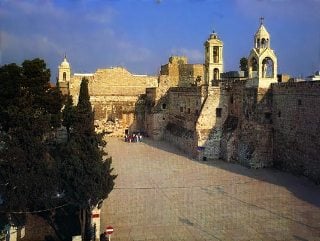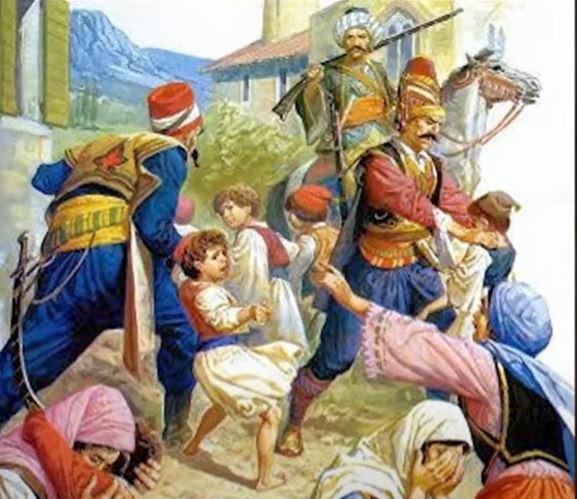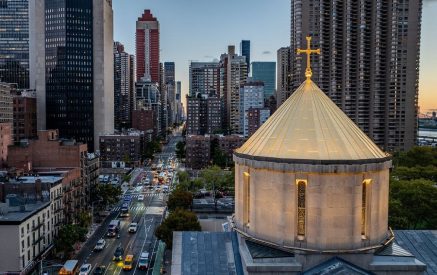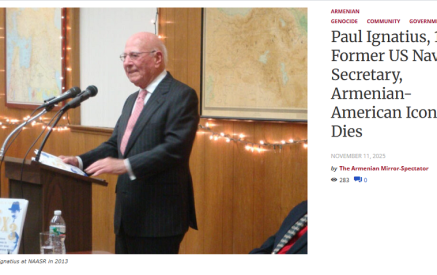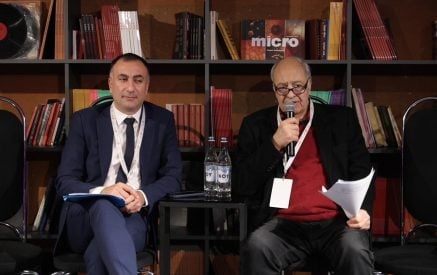In recent months, I have been contacted by many readers who asked me to write about the controversy regarding the Jerusalem Armenian Patriarchate’s lease of around 25% of the Armenian Quarter to a Jewish investor for 98 years. However, as the details of the lease contract were not made public, I was unable to write about it.
Trying to learn the facts, I called the Armenian Patriarch of Jerusalem Nourhan Manougian twice, asking him for a copy of the contract. He did not respond. I spoke with now defrocked Fr. Baret Yeretzian, one of the signatories of the contract, who said he did not have a copy of the contract. I made several unsuccessful attempts to contact some of the lawyers who went on a fact-finding mission to Jerusalem and prepared a 184-page report. I was told that the report has not been made public because it had some sensitive information. I also contacted an Armenian activist in Jerusalem and one of the sponsors of the fact-finding mission.
Even though I still have not seen a copy of either the report or contract, I just read a revealing article in the Keghart website which posted an interview with a Jerusalem Armenian activist who had a copy of the 184-page report, including the contract with one of the pages missing. I decided to write about what I have learned so far, even though I prefer to review personally copies of the contract and report.
For those who have been following the various scandals involving the Jerusalem Armenian Patriarchate, there is nothing surprising: sad, but not surprising. Such covert land leases and sales of precious items owned by the Patriarchate have been going on for decades.
Read also
This current scandal is not just a questionable business transaction. It has political repercussions given the controversy between Palestinians and the State of Israel over Jerusalem. It has also consequences for the survival of the dwindling Armenian community in Jerusalem.
The contract for the lease has been signed by three clergymen: Patriarch Nourhan Manoughian, now defrocked Father Baret Yeretzian, and Archbishop Sevan Gharibian. As Fr. Baret, the former director of the Patriarchate’s Real Estate Office, has come under intense criticism, many feel that the Patriarch has attempted to shift the blame on Fr. Baret, making him the scapegoat. Nevertheless, King Abdullah II of Jordan, historically the custodian of Holy Sites in Jerusalem, and Mahmoud Abbas, the head of the Palestinian National Authority, in a joint announcement, blamed the Patriarch and suspended their recognition of Archbishop Manougian as the Patriarch of the Armenian Church in Jerusalem, the Holy Land and Jordan.
Hagop Djernazian, an Armenian activist in Jerusalem, told Keghart that the Australian-Jewish investor, Rubinstein/Rothman, plans to build a seven-star hotel on ‘Goverou Bardez’ (Cows’ Garden), the land leased from the Armenian Patriarchate. The size of the property leased is 11,500 square meters or 123,785 square feet. The annual payment to the Patriarchate is $300,000. However, Fr. Baret told me that the income will be 5% of the hotel’s profits which can vary from year to year. Djernazian said that the leased land currently includes five Armenian homes, the Patriarch’s Garden, the Patriarch’s private parking as well as the hall of the seminary. At the end of the first 49 years, the buyer has the option to renew the lease for another 49 years.
Djernazian also explained that the lawyers obtained a copy of the contract from an unknown third party, not the Patriarchate nor the municipality of Jerusalem, but he insists that the contract is genuine, as “we were able to confirm it with the Patriarchate.”
Patriarch Manougian, under pressure from Armenians worldwide, has promised to cancel the contract, but a unilateral cancelation may result in legal challenges and financial penalties. A representative of the Palestinian Authority stated that it would be willing to pay the penalty for cancellation. However, Djernazian does not seem to be aware of that pledge, as he told Keghart: “If money is needed, I’m sure the Patriarchate, the community and the Armenian nation will work together to raise the required amount to pay the cancellation penalty.”
According to Djernazian, there are a couple of problems with the contract:
1) It violates the by-laws of the Patriarchate;
2) The date on the contract is altered from July 7 to July 8, 2021, to reflect the date that the investor’s company, Xana Gardens Limited, was registered in Israel. Fr. Baret explained the discrepancy as a simple typing error.
It is not clear what the next steps are to resolve this thorny issue. One way would be for the Jerusalem Armenian community to hire Israeli lawyers to sue the Patriarch or the Jewish Investor, however, no one else other than the Patriarch and the Jewish investor have legal standing in court.
Given the prominence of Jerusalem in the world and importance of the Armenian presence in the Holy City starting from the fourth century, this lease is of interest to all Armenians worldwide as well as Palestinians, the State of Israel, and the King of Jordan.
However, one party we have not heard from is the Government of Armenia which could officially contact the State of Israel to make its wishes known. However, Armenia’s leaders have their hands full right now, given the precarious situation in Artsakh and Armenia.
By Harut Sassounian
Publisher, The California Courier



















































